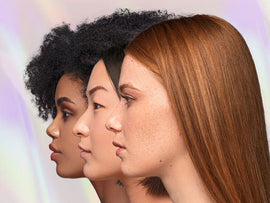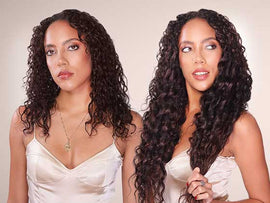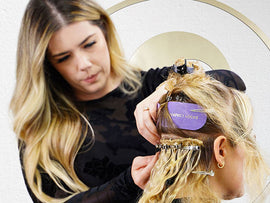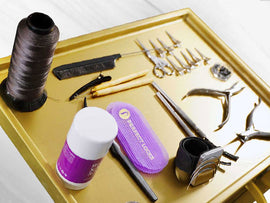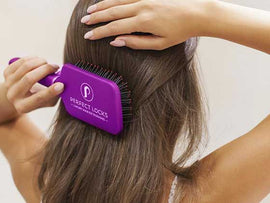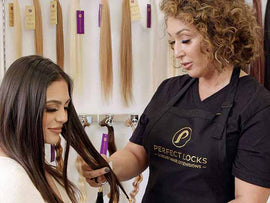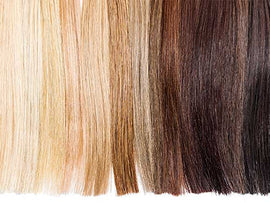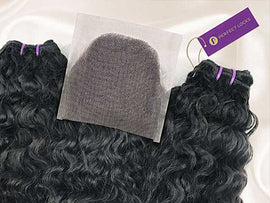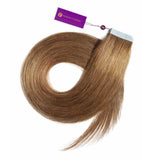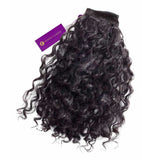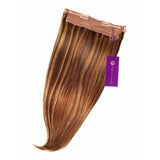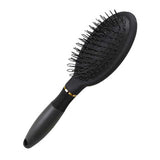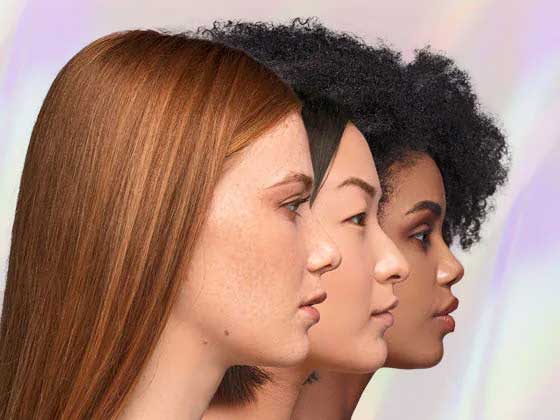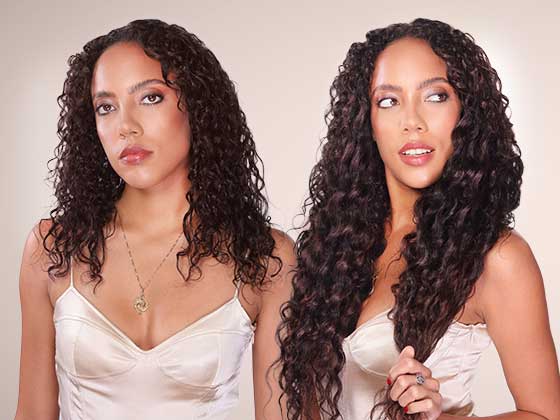@perfectlocks Is it actually from Europe or is this another marketing ploy? Weigh in with your opinion and join in on the conversation! Read our latest blog to learn more! #EuropeanHair #europeanhairextensions #letstalkaboutit #truthbetold ♬ Trap Mafia - Lastra
Have you ever heard of “European hair”? Many hairstylists and their clients believe that European hair is sourced directly from Europe, with images of glamorous Europeans selling off their luscious tresses dancing through their minds. But the truth about European hair is much more complex - and deceiving - than many people realize. In this blog post, we'll explore exactly what “European Hair” really means and uncover the surprising facts behind its origin, false marketing, and alarming truths about the hair extension industry.
Truth #1: European Hair RARELY Comes from Europe
At least once a week I receive an email or am asked in our store if we carry “European hair” and I have to try not to laugh, and stop to think for a moment about how our industry has gone through some many waves of slick marketing. Here’s a spoiler: this is yet another one. I’m sorry, but 9 times out of 10 “European hair” extensions aren’t from Europe.
Some hair extension companies make this claim and somewhere small on their website clarify that European hair doesn’t mean that it is a product of Europe, just means that it came from people of European/Anglo descent. Really? That’s 16% of the world’s population…which is, you know, a pretty wide net. People of European descent live all over the world.
Truth #2: You’ve been lied to before, you’re being lied to now and we’ll be lied to again.
Just 5 to 7 years ago, there was a huge marketing buzz about Russian, Brazilian, Malaysian, and Cambodian hair which took on the African American hair industry like a wildstorm. With slick marketing evoking hair from far away lands as “pure”, “untouched”, people believed they were buying exotic hair from these countries. It was later discovered that these claims were just a deceptive marketing strategy of hair collected in China and dumped through Alibaba and aliexpress. To add some illusion of credibility to these claims, oftentimes the Chinese hair was shipped to Myanmar or India to be assembled into wigs, wefts and extensions according to an expose done by BBC News. It took years for the “truth” to be revealed in message boards, news articles, and videos that it was all hair from India or China that had been processed to mimic Brazilian curly hair or bone straight Malaysian hair. Even then, sometimes the hair is mixed with animal hair or synthetic hair to drive down the cost of goods on the product and maximize profits. The Mirror in the UK covered a story about a mother who spent £425 for “Russian” hair extensions that turned out to be treated horse hair.

“So what’s with the slick marketing? Why does the story keep changing?”, you ask. Considering the global wig, weave and extensions market is a $7 to $10 billion market, it comes down to money and a lot of it. The buzz of Russian hair has worn off, so now we’re seeing the story evolve into claiming the benefits and quality of European hair. Sometimes customers wise up and ask if the company can trace the origin, so they show you a batch number (which identifies the time/grouping/lot of when something was made or assembled, not where it came from). It’s false advertising and unfortunately our industry is far from regulated.
For the last decade the hair extension industry has split the commodity of human hair down into nebulous ethnicities or countries of origin to cater to a growing Caucasian community who is embracing hair extensions and wigs more than any previous generation since the 1800s. New techniques and processes on the market have made it easy to install on people with even the finest hair texture, marking a turning point in the business. The demand is there, money is to be made and some unscrupulous people will go far to get hair at any cost.
Truth #3: If “European Hair” doesn’t actually come from Europe, where does it come from? Chances are it came from China and often at a human cost.
Despite Indian hair being known the world over, it would surprise you that Hong Kong (China) exports almost ⅓ more of the world’s supply of human hair.

Does some hair actually come from Europe? Sure! But at a very hefty price tag because of rarity. Ask yourself this question: where in European countries have you ever heard of women lining up to donate hair willingly? Are they being forced and exploited to donate their hair for money? In Europe, that’s unlikely. So how can there be an industry sustaining, steady stream of quality hair coming from Europe without a system of voluntary donations? While some hair can be collected from hair salons, it’s often what is called “short lengths” and “fallen hair”, gathered from hair clippings and even from the floor yet still is priced 4x that of other hair.
So where does all of this hair actually come from? The fact of the matter is, the hair in “European”, “Russian, and “Brazilian” extensions are donated or often is collected unethically from countries like Myanmar, Vietnam, Burma, China, and Tibet. This hair is considered to be close to true European hair and is chemically treated, colored and marketed as European hair because of the texture. As mind blowing it is, the United States itself has cracked down on hair imports known to be unethical, having been collected from Chinese prisons where women were not given the choice. Read more about the ethics of Indian hair vs Asian hair. I started this company and our brand out of the honest desire to give women the kind of confidence, love and hair options I yearned for when I was younger. It truly saddens me to see how some companies have use unethical practices and crooked marketing strategies to lie about the true origin of the product and how it was obtained. In its purest sense, this hair that gives women undergoing chemotherapy, who struggle through hair loss a loving gift from women have a world away in India during a religious ceremony. We firmly and rigorously verify the origin of our hair down to the very temple it was collected from and that will never change.
So what can we do? Forewarned is forearmed and knowledge is power. Ask questions, pay attention and don’t be conned…only when the great majority demand more transparency and regulation of our industry will things change.
Barilla pasta doesn’t come from Italy and there is no such thing as “European” hair extensions.
Stay gorgeous,
Priyanka Swamy




